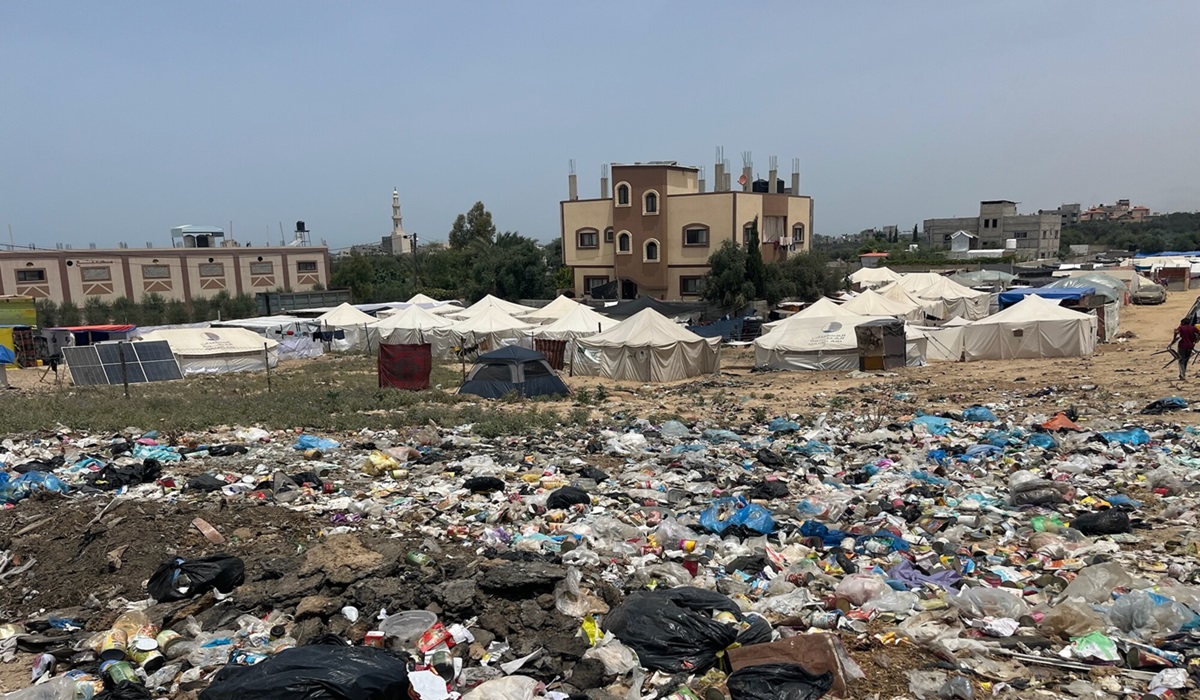In a recent update, Suze van Meegen, the Norwegian Refugee Council’s (NRC) head of operations for Gaza, has highlighted the dire situation facing the people of Gaza. After eight months of escalating violence, the region is in a state of unprecedented crisis. The continuous brutality and destruction have become dangerously normalized, masking the severe human suffering occurring daily.
Van Meegen emphasizes that the current living conditions in Gaza are far from normal. The population lives under constant fear, even in places that should be safe, such as schools and hospitals. Each week sees hundreds of burials, a testament to the ongoing violence and its impact on civilians. The recent escalation in Gaza’s Middle Area has seen attacks of unparalleled intensity, particularly affecting civilians who had sought refuge there after fleeing from Rafah.
The concept of a “humanitarian zone” has been violated, with these areas becoming battlefields rather than sanctuaries. This undermines the very principle of civilian protection and respect for humanitarian spaces. Humanitarian organizations are struggling to provide even minimal assistance, their efforts hampered by the dangerous and restrictive environment.
The ability of humanitarian agencies to operate has been critically compromised. Van Meegen criticizes the disingenuous claims that humanitarian aid is being effectively delivered, arguing that such statements do a disservice to the people whose survival and dignity are at stake. The global community, including member states and donors, must recognize the severity of the situation. They need to support humanitarian efforts by ensuring the safety of operations, establishing a functioning banking system, maintaining a steady fuel supply, and keeping all land crossings open for humanitarian cargo.
The NRC’s latest reports from Gaza paint a bleak picture. Around half of Gaza’s population has been displaced this month alone due to Israel’s expanded operations in Rafah. The total number of displaced Palestinians has reached approximately 1.1 million, with 100,000 more displaced from northern Gaza. The NRC has been unable to receive relief items since early May, significantly hampering its ability to provide aid.
Security concerns, supply shortages, and coordination challenges have nearly halted humanitarian responses south of Wadi Gaza. As the needs of the population grow, the capacity of humanitarian workers to respond is diminishing. The coastal road from Al-Mawasi to the Middle Area is congested with displaced individuals and vehicles, turning short journeys into hours-long ordeals. Transport costs have surged, making relocation unaffordable for many, forcing them to create makeshift shelters wherever possible.
The accumulation of solid waste is becoming critical, exacerbating health issues like Hepatitis A. Fuel supplies remain inconsistent and insufficient, with priority given to essential services such as health facilities, bakeries, and water sanitation. June, typically the end of the school year, marks a year of lost education for Gaza’s children, with schools closed since October 7. The crisis has also led to over 17,000 separated and unaccompanied children, adding to the more than 19,000 children orphaned in the past eight months.
As civilians in Gaza continue to await a political resolution, the international community must act to facilitate humanitarian solutions. While humanitarian aid cannot fully resolve the crisis, it is crucial in mitigating its worst effects. The NRC calls for absolute guarantees for the safety of humanitarian operations, a functional banking system, a consistent fuel pipeline, and open land crossings for humanitarian cargo. The world must not turn a blind eye to Gaza’s suffering; immediate and decisive action is essential to address this humanitarian disaster.









